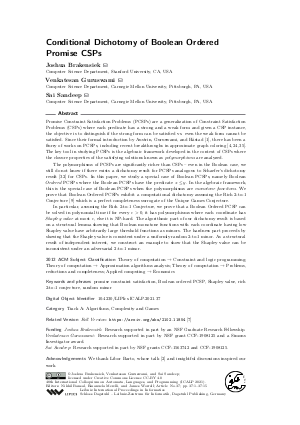LIPIcs.ICALP.2021.37.pdf
- Filesize: 0.72 MB
- 15 pages

 Creative Commons Attribution 4.0 International license
Creative Commons Attribution 4.0 International license

































Feedback for Dagstuhl Publishing